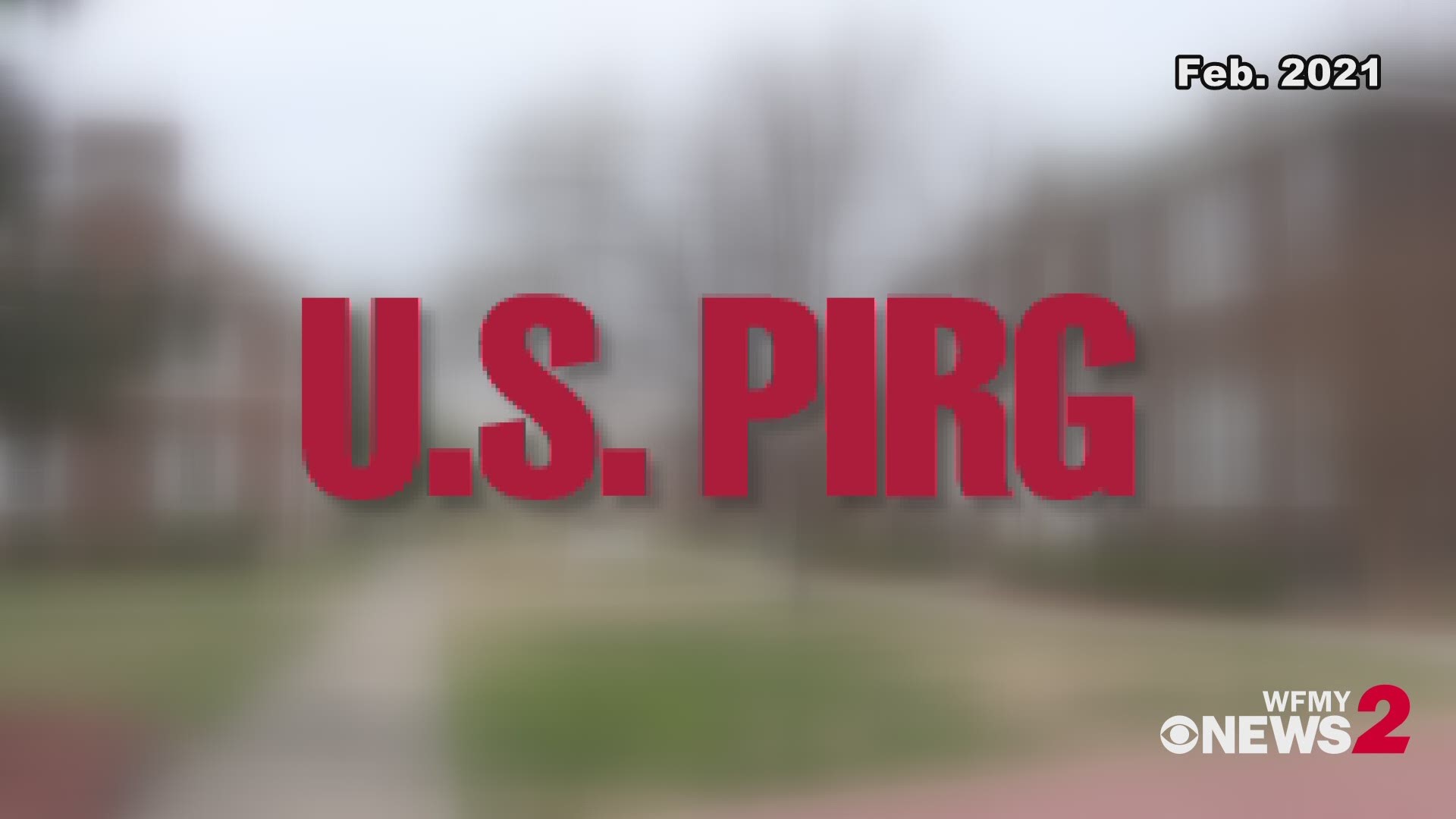GREENSBORO, N.C. — The economic difficulties brought about by the COVID-19 pandemic have made it even more difficult for students to afford textbooks, a national survey said. While the price of textbooks has not increased, 65% of college students polled by the U.S. Public Interest Research Group did not purchase a textbook for a class despite believing it would negatively impact their grades.
The study, released Wednesday, is the third edition of the PIRG's Fixing the Broken Textbook Market series. The study polled 5,000 students at 80+ colleges and universities.
Its findings center on the current state of textbooks and the COVID-19 pandemic's impact on college students' ability to access required learning material.
"COVID-19 has raised the barriers students face both financially and technologically to access course materials, even if it has not necessarily made course materials more expensive," the study found.
Expensive textbook prices are not a new topic. The average cost of college textbooks has risen four times faster than the rate of inflation over the past 10 years, studies find. The inflation is due largely, those studies believe, to colleges' reliance on textbook access codes.
Textbook access codes are usually purchased as a part of the required textbook, giving students access to the material essential for the class online. Once the semester ends, the access course is rendered meaningless, pinning students to the wall. The following semester, students must purchase the textbook with new access codes at retail price, disincentivizing textbooks from being passed on or resold, and ensuring revenue from the overinflated books continues to steadily stream into the academic institutions. It also allows the publishers and authors to essentially set the price of the textbooks.
Some required introductory textbooks at Triad colleges and universities hover between $150 and $300.
"The bookstore is here to provide the academic material to our students, not necessarily decide if it is good or bad," said NC A&T's director of retail operations Donna Morris-Powell. "We work to provide their academic materials at a cost that is affordable to them because we want them to be successful while they are here on our campus."
In previous PIRG studies, 65% of surveyed students reported they skipped purchasing or renting required class material because it was unaffordable. However, in recent years, more affordable options for students have become available.
"The code can now be purchased separately without the physical textbook, and then on that code [students] have access to the digital textbook." UNC Greensboro bookstore general manager Brad Light said.
"We work to provide the course materials in various formats to help our students with the economic costs of textbooks," Morris-Powell said. "If a student chooses to rent a textbook, the savings can be anywhere between 60 and 70%."
NC A&T's "First Day" program also provides textbooks virtually, which can save students just over 50% on textbooks, should they choose to use the program, Morris-Powell said.
Many colleges and universities deploy similar cost-saving programs, and early results show the effect has been felt. Textbook price inflation has plateaued in recent years, the PIRG said. However, it doesn't fully explain why the number of students skipping required materials has remained the same or increased.
This year, despite the steadier prices and affordable buying options, once again, 65% of students surveyed said they didn't purchase a required textbook. There was a 21% jump in students who did not purchase required access codes from the previous PIRG study conducted in 2019.
During the pandemic, the PIRG found the transition to remote learning, internet access and economic insecurity during the pandemic made a difficult situation worse for some students.
Seventy-nine percent of the students surveyed reported being impacted in some way by the pandemic, such as losing their job, getting COVID-19, or transferring schools, the study said.
The study also found 30% of students who lacked reliable internet access reported skipping buying access codes, while 82% of food insecure students said they skipped required material. Nearly 10% of all students reported missing meals directly due to COVID-19, the PIRG found.
All these factors have contributed in part to the rising statistics despite textbook prices leveling off. Many required textbooks at colleges have come down in price, but the pandemic has undoubtedly made it more difficult for some students to access them.

